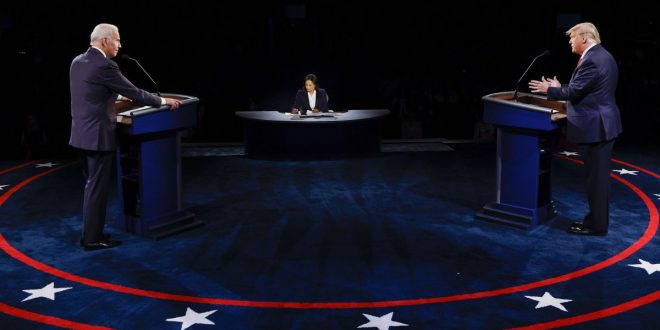AT News
KABUL: The US President Donald Trump was criticized for shrugging off reports in June claiming that Russian military intelligence offered rewards to Taliban militants to kill US troops in Afghanistan.
In a presidential debate, Democratic nominee Joe Biden criticized his rival in November elections Donald Trump for having disregarded credible reports suggesting that Russia had paid the Taliban fighters to attack US troops in Afghanistan.
“I do not know why this president does not want to make it clear to Putin about the rewards for killing American troops in Afghanistan and destabilizing NATO,” Biden said.
This is as Trump had rejected having receiving any report regarding Russia bounties’ plot and downplayed Kremlin’s influence in American politics.
In late June, the New York Times published an article citing unnamed US intelligence officials, claiming that Russian military intelligence had offered rewards to Taliban-affiliated fighters for attacking US troops in Afghanistan. The subject has been informed. No evidence has been provided.
The Trump administration has been deliberating for months about what to do about a stunning intelligence assessment. American intelligence officials said then that a Russian military intelligence unit secretly offered bounties to Taliban-linked militants for killing coalition forces in Afghanistan — including targeting American troops — amid the peace talks to end the long-running war there, according to officials briefed on the matter.
The intelligence finding was briefed to President Trump, and the White House’s National Security Council discussed the problem at an interagency meeting in late March, the officials said.
Any involvement with the Taliban that resulted in the deaths of American troops would also be a huge escalation of Russia’s so-called hybrid war against the United States, a strategy of destabilizing adversaries through a combination of such tactics as cyberattacks, the spread of fake news and covert and deniable military operations.
Zabihullah Mujahid, a spokesman for the Taliban, had denied that the insurgents have “any such relations with any intelligence agency” and called the report an attempt to defame them.
 Afghanistan Times
Afghanistan Times




